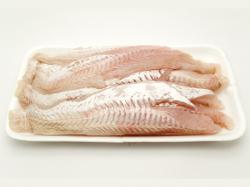FDA Program Recognized For Fighting Fish Fraud
June 26, 2015 | 2 min to read

WASHINGTON – The Food and Drug Administration’s (FDA) ongoing integration of forensic science as a way of combating seafood fraud and mislabeling is paying off.
The project known as Fish Seafood Compliance and Labeling Enforcement (SCALE) is being recognized by the Department of Health and Human Services, at the HHS Innovates Awards, for its outstanding success with DNA testing. The program’s educational component is also winning praise, while the combined effort is being called “state-of-the-art.” Project Fish SCALE is one of seven HHS projects to receive this annual award but is the only FDA program recognized.
“The integration of high tech science, to root out fraud, with good old fashion training and promotion, to prevent it, is a winning combination found in Fish SCALE,” said Lisa Weddig, Secretary of the Better Seafood Board. “Paying this type of strategic attention to seafood fraud will make a real difference.”
In October, the culmination of two years’ worth of Fish SCALE research found 85% percent of commercial seafood, tested at wholesale, was labeled correctly. This innovative DNA examination gives FDA the ability to focus its resources on higher risk species with more targeted investigations.
“The enforcement of correct labeling is vital to the integrity and future of the seafood community. It’s great to see such strong and focused efforts from the FDA recognized,” said BSB Chairman Jamie Marshall, senior vice president of food service at Trident Seafoods. “Mislabeling hurts businesses that are doing the right thing as much as it does consumers.”
The BSB encourages the FDA’s science-based approach and supports the innovate DNA testing initiatives provided by the Fish SCALE project.
###
The Better Seafood Board (BSB) was established by the National Fisheries Institute to provide a mechanism for industry’s partners in the supply chain – restaurants, retail operations, producers and processors – to report suppliers suspected of committing economic fraud.
Source: The Better Seafood Board (BSB) / National Fisheries Institute
